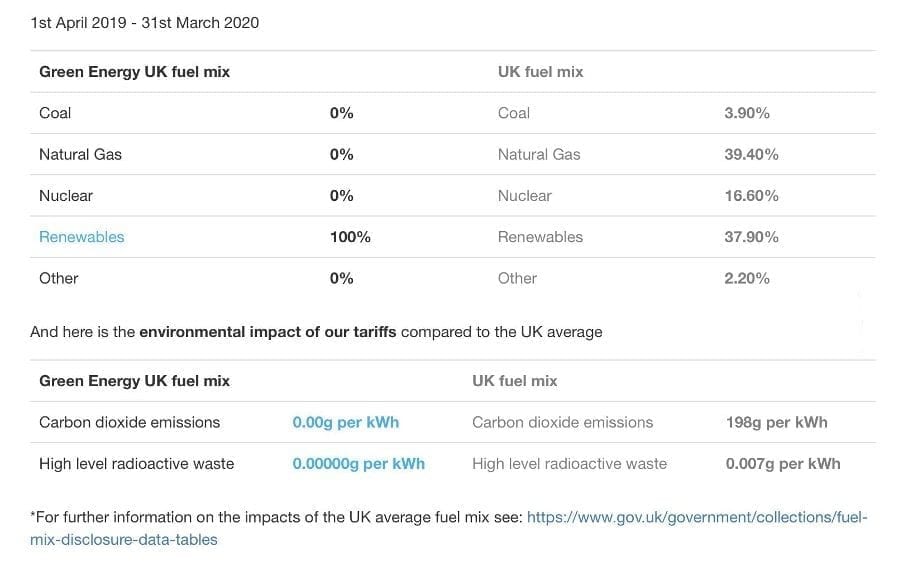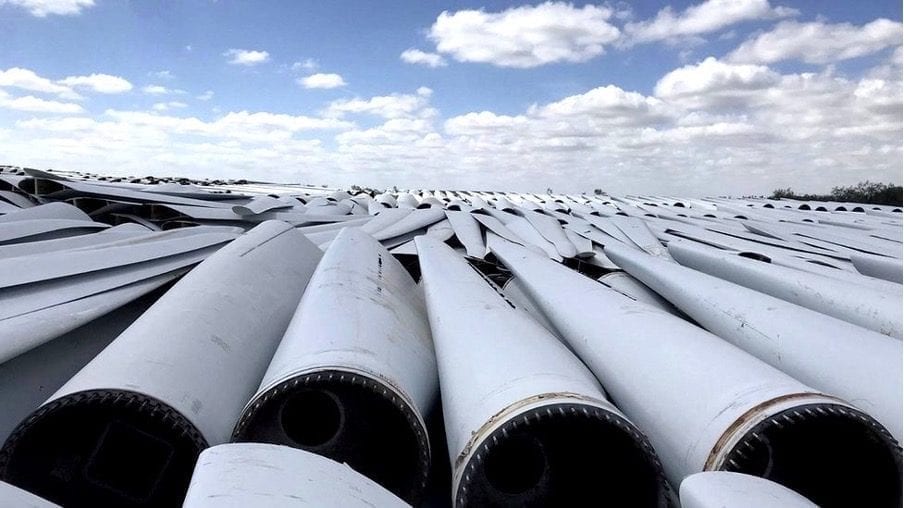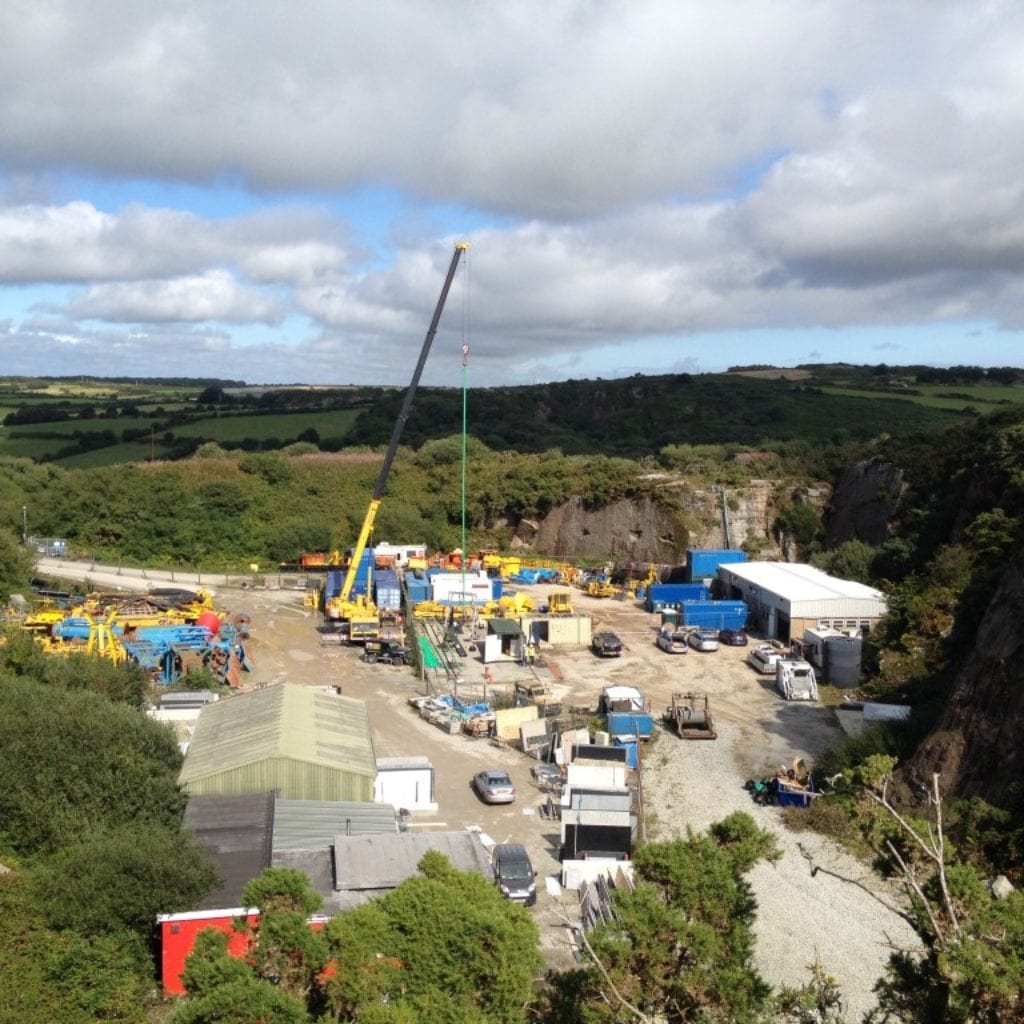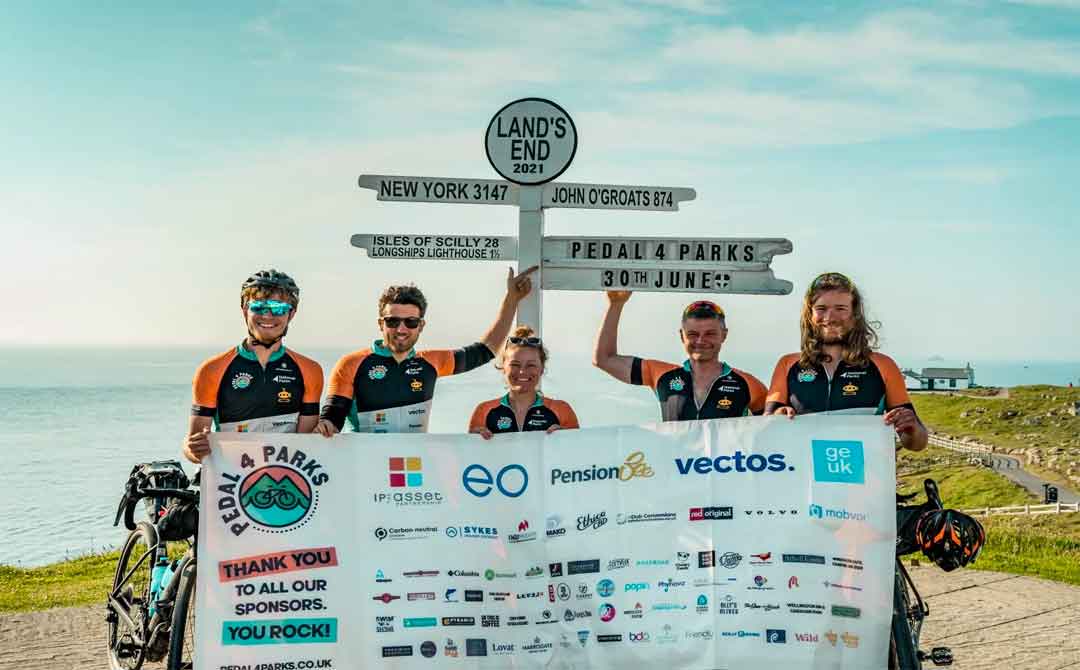
Renewable Energy Initiatives in the UK: Why Should You Go Green?
One of the central motivations of the Pedal 4 Parks expedition is to search for and share scalable solutions to the environmental crisis in the UK. It is part of our mission to uncover the extent of human interference in our green spaces and talk to the people already advocating for change. When thinking about these interferences, one particularly hot topic is the growth of renewable energy resources to compete against the global overuse of fossil fuels. Issues of energy production and consumption are ever-present in political discussion and school curriculums, but little effort has been made to promote a consciously greener network. We are lucky to be working with and sponsored by Green Energy UK (GEUK) who is the only supplier to offer 100% green electricity AND gas in the UK. Companies like GEUK are making it easy for us to be green, but what does “green” really mean? We want to investigate this question and understand what renewable energy solutions are out there, what impact they are having and what society can do to limit our burden.
First things first, what is “renewable” energy and why is it better for the environment? As the name suggests, renewable energy is energy collected from sources that will replenish naturally on a human timescale and can be used in replacement of fossil fuels. Fossil fuels, which include the likes of coal, oil, and natural gas, are a quickly depleting source of energy, but more significantly produce a damaging list of secondary effects that are detrimental to our global environment. The gases, also known as greenhouse gases, produced when these fuels are burned is the leading cause of global warming and have serious impacts on the natural systems of living organisms, including humans. Other than providing the means to sustain human energy consumption, many renewable energy methods come from carbon-neutral sources, like wind, solar, rain, tides, and geothermal heat. We won’t go into detail about the specific mechanisms of these technologies, but we will consider the impact they have and what strategies may be most effective. The issue we are tackling is both environmental and economic as, without a renewable solution to fossil fuels, we will continue to drain our resources to an irreversible point.

Photo: Credits to Alex Pierott
GEUK is the ONLY energy supplier in the UK that provides its customers with 100% green gas. This “green” gas is more formally known as biomethane and is created through Anaerobic Digestion, which naturally occurs as organic matter is broken down. This includes utilising pre-existing and natural circumstances like landfill, animal waste and decaying plant matter to heat your home. As humans, we produce an excessive amount of waste. In 2016, the UK alone produced a total of 221 million tonnes of total waste… given a small car weighs around a tonne, that is the same as piling up 221 million Fiat 500’s! Waste is a completely different problem, but this biomass process looks to harness the natural gases produced and put it straight back into our homes. We often see a lot of focus on renewable energy methods that generate electricity, so GEUK is pioneering a change to all aspects of energy consumption.

You may be thinking, but my supplier says they are carbon neutral? This is where the understanding of definitions like “carbon neutral” become essential to know what a company is really doing. Other suppliers that claim this title may still source their gas from brown sources but can offset this supply by buying into other green projects across the globe. Although a start, this means your gas is still being supplied from environmentally damaging sources and won’t be offsetting YOUR carbon footprint.
Switching to GEUK and using green gas actively lowers the impact you are having, and it’s super easy to make this change. Follow this link to their website to get a personalised quote! Once you have decided to change, GEUK will contact your current provider on your behalf to inform them of your switch. Once this has been confirmed and you are released from your old contact you are ready to start consuming your energy with a good conscience! GEUK’s portfolio of renewable generators make great use of natural waste materials produced in industry and agriculture (biomass and biogas), as well as the sun (solar), wind and water (hydro). This directly translates to the wider UK renewable energy mix, and I am sure we have all come across dams and wind turbines on our travels!
The search for “renewable” and “sustainable” energy solutions has been both rewarding and damaging to our environments. As much as these initiatives offer an alternative to the fossil fuel industry, they also introduce new environmental issues and make us question whether we can find a solution to fill the energy demand. The first, and the most obvious issue comes with the space needed to house these renewable structures and whether it is worth the risk.. Deforestation and habitat destruction put irreversible pressure on local habitats, and this can be the case for solar, wind, hydro and biomass as they all require an obstruction to the landscapes they are placed in. Solar farms are a particular strain on land as numerous solar panels are needed across huge areas to generate a useful amount of energy. Despite the unpredictable British weather, Kent is soon to be home to the UK’s biggest solar farm, spanning over 900-acres. There has been much disappointment after this announcement as the site will cover important areas of coastal wetland. This area acts as a key flood defence for the surrounding towns and is acknowledged as an important natural world sight for migrating birds, disrupting the habitat for these animals. This is just one example of how these “solutions” can be damaging. Hydroelectric dams can disrupt fish migration, which in turn damages the local wildlife food chain and wind turbines can disturb in-flight birds among other destructive issues.
GEUK’s EKO Energy Tariff looks to address this challenge. EKO Energy is the only tariff in Britain that has been certified as not only 100% green but has also met strict sustainability criteria. This means that all energy farms have to ensure they work to minimise their impact on the surrounding environment and it is generated in locations that ensure marine and bird habitats are safeguarded.
Another drawback of renewable energy comes with the material they are built from and the lifespan they hold. For example, the average land wind turbine has a lifespan of 20-25 years. This means that huge amounts of money and energy are needed for the upkeep of these turbines. Worse still, the material used to build the turbines is then discarded creating the “wind turbine graveyards” pictured below. Given the short lifespan and relatively low energy production per turbine it bears the question, is this the sensible and scalable solution we should be aiming for?

Credits: Global Fibreglass Solutions
In recent years global governments have given greater attention to the climate and energy crisis, laying out roadmaps for changing the way we produce and consume energy. The UK government’s most recent climate change commitments have set us on the course to reduce our carbon emissions by 78% by 2035, reaching net-zero by 2050. To achieve this ambitious goal, the government has set out a series of milestones. These include banning the sale of petrol and diesel cars in 2030 to encourage the production of electric vehicles. Also, the Ultra-Low Emission Zone (ULEZ) is to be extended again in October 2021 to make better use of the public transport initiatives already in place (including over 150,000 street cycle parking locations across London). Lastly, the government looks to produce enough electricity from offshore wind to power every home in the country by 2030, implying a strict focus on the develop of renewable strategies. Business and Energy Secretary Alok Sharma is quoted as saying…
“Powering every home in the country through offshore wind is hugely ambitious, but it’s exactly this kind of ambition which will mean we can build back greener and reach net zero emissions by 2050.”
Maybe these targets are overly optimistic, but the attention to green energy initiatives brings hope that other businesses and communities will buy into the UK’s goals, also becoming increasingly aware of the environmental issues we are experiencing.
Alongside the government, many businesses and environmentalists have been developing ways for us to reduce the energy we use and lessen the pressures on the production of energy. Efforts to reduce transport emissions can be seen on smaller levels by companies encouraging shared modes of travel. This also extends to personal efforts to travel more consciously through public transport or even cycling… we are definitely advocates for the latter!
What other small changes can we make to reduce our consumption?
- As we have already highlighted, it is simple to switch to a green energy provider and power your own home with renewable electricity (and gas with GEUK!).
- You can also look to buy from businesses that use green energy in their production and distribution processes.
- Rather than using Google as your primary search engine, you can switch to using sites like Ecosia. They donate 80% of their profits to non-profit organisations that focus on reforestation, so you are quite literally planting trees with every search.
- Reducing single-use plastic and recycling waste will reduce the amount of energy used within the industries that produce large amounts of plastic and maybe even prompt companies to look for alternative packaging for their products!
- Using locally sourced materials and products will cut out a huge portion of energy use in the supply chain, benefiting your carbon footprint and supporting business within the UK.
- Finally, and most importantly, you can become aware of how much energy goes into production and supply across the world. A conscious mind will push you to make these small changes, even if it’s ditching a plastic coffee cup or water bottle for a reusable one. These changes are small but when made together on a mass scale they WILL make a difference.
GEUK asked our very own Isaac to give some of his tips on helping preserve our local green spaces and what you can look out for on your daily walk!
One of the most promising methods in renewable research is using underground geothermal heat to generate our energy. Like wind or solar, geothermal heat is an inexhaustible natural occurrence, but it is split apart from the crowd for the minimal space it requires and its environmental positives. As we know wind turbines and solar farms require a huge amount of construction and environmental destruction, and often all for a lifespan much shorter than ours! The size and design of geothermal power plants allow them to fit into diverse urban landscapes that hold higher levels of geothermal activity. There will inevitably be some loss of natural habitats but to an extent far less than the 900-acre solar farm built in Kent. Iceland is one of the world’s leading countries in geothermal energy production, with almost 100% of its electricity being generated from its geothermal plants. This is mainly due to the rich sources of geothermal heat the country has as it is positioned right on top of a tectonic plate boundary, which has its burdens when volcanoes keep erupting around you! Excitingly, we here in the UK are also starting to develop our own geothermal networks to add to our energy mix. Already being put in place in Cornwall, the initiative headed by Geothermal Engineering Ltd is based on other successful projects in Germany. If successful, this will show the potential for geothermal initiatives across the UK and could have the potential to deliver up to 20% of the UK’s electricity and heat energy by this sustainable and eco-conscious process.

Photo: Credits Think Geoenegry
There is always new ground-breaking technology coming from renewable energy researchers and professionals. One recent study has found potential in harnessing the energy from photosynthesis, collecting sunlight without the need for huge solar farms and expensive materials. Keep watching this space for new and exciting future developments… and who knows, we might be lighting our homes with plants within the next decade!
So, is there one miracle solution? If only it were that simple! Maybe our best hope is not in one solution but utilising a diverse mix of all the research we have developed to date. The diversity of our natural environment means that we can apply a variety of energy technologies that all complement one another. Focusing on what natural resources are abundant within an area or country will allow us to optimise energy production without wasting time or money on infrastructure. In the UK we have focused a lot of our attention on wind and tidal due to our often-windy climate and high tide streams. Furthermore, the UK has started thinking about what resources can be used in what locations, like the developments of geothermal energy in Cornwall.
We must remember renewable energy strategies are still in their infancy, and there is a long way to go before reaching the perfect scalable and balanced solution. With this, the debate is only heating up. Do we even have enough renewable resources available to sustain human consumption at the same level as fossil fuels? With short shelf lives on renewable machinery are we entering another consumable nightmare? Have we managed to bring new energy technologies like Hydrogen under control and are these options safe? In searching for new energy sources, we must ask these questions and challenge the problems before they come into being. We invite you to become a part of the discussion. Think about where do you get your energy from? How much energy do you use? and What changes could you make right now to make a difference?
What you can do to help…
Follow Us! Head over to @pedal4parks on Twitter, Instagram, Facebook and LinkedIn
Sponsor Us! We are always looking for sponsors and support for our journey, if you are interested check out our sponsors page or email us at partnerships@climateexplorers.co.uk
Donate! Via https://uk.gofundme.com/f/cycling-over-sea-and-land-for-national-parks
Can’t Donate? Don’t worry, you can still make a difference by reading and sharing our story. Be concerned and spread the word!
Check out our most recent blogs…
Mental Health Awareness Week: Pedal 4 Parks goes Personal
A Very Wet Weekend in Wales: Pedal 4 Parks Training Update
Pedaling North to South: The Route of our Environmental Pursuit
This post was brought to you by media team member Emily (Instagram – Twitter – LinkedIn)
Comments
Sorry, the comment form is closed at this time.




Pingback: Moving Up: Our Journey to the Starting Line – Pedal 4 Parks
Pingback: Orcas on the Orkneys – Pedal 4 Parks